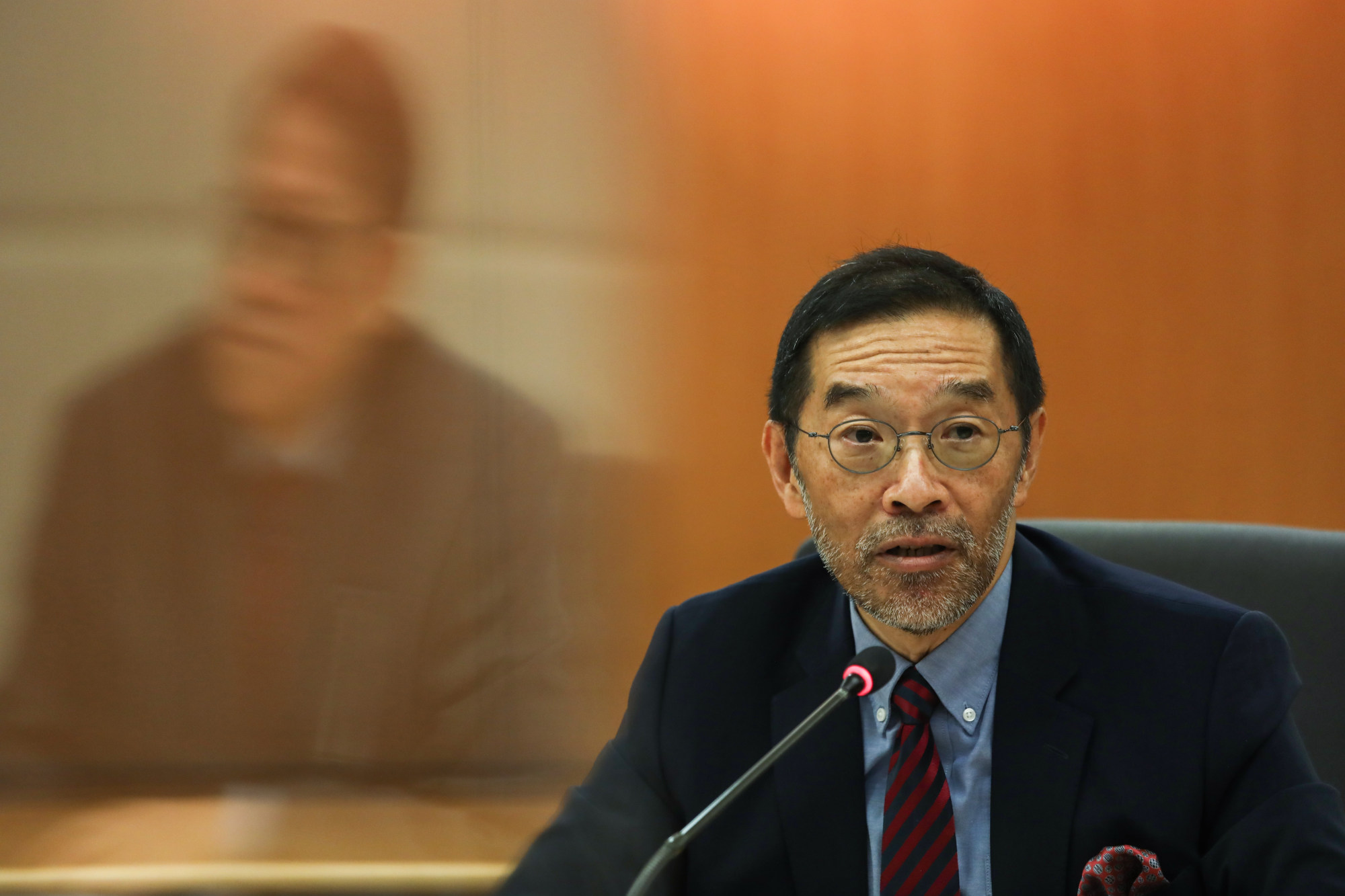
Hong Kong’s financial task force to host more meetings in coming days to give short-term recommendations soon to boost stock market turnover and fundraising activities, chairman says
- The task force chairman Carlson Tong Ka-shing told the Post that more meetings will be held in coming days to brainstorm for ideas to bolster the market’s activity
- Members of the task force are drawn from a cross section of financial professionals in banking, stockbroking, asset management and investments
The 13-member task force held its first meeting on Wednesday afternoon, its chairman Carlson Tong Ka-shing said, confirming an earlier report by the Post.
“The task force first discussed the relevant work methods and plans,” before conducting a “detailed analysis of market conditions and stock market liquidity from various financial regulatory agencies and the Hong Kong stock exchange,” Tong said. “They also actively exchanged views on factors affecting stock liquidity and related matters, including relevant data on investment costs.”
The task force will “meet frequently,” as Hong Kong’s Chief Executive John Lee Ka-chiu expects the team to provide him with recommendations before the city’s top official delivers his annual policy address in October, Tong said.

“The Financial Secretary had stated that the task force will study how to improve the liquidity of the stock market and has not ruled out the option of stamp duty,” Tong said, but declined to elaborate.
The meeting chaired by Tong, the former Securities and Futures Commission (SFC) chairman, was to provide a brainstorming forum for the task force to identify the problems that have bedevilled what was once the world’s most preferred destination for initial public offerings (IPOs), and find solutions to reignite the market’s activity.
Members of the task force, drawn from a cross section of financial professionals in banking, stockbroking, asset management and investments, can discuss issues such as the market’s turnover, ways to attract IPOs, as well as the market’s much-touted plea to slash a stamp duty on transactions, sources told the Post earlier, declining to be identified.
Some members may raise technical aspects of how the stock market functions, from the listing regime to the market’s structure and the trading mechanism, a source said.
The task force, set up by Financial Secretary Paul Chan Mo-po, was established last week at a crucial time for Hong Kong’s capital market. About HK$115 billion of shares changed hands everyday on average during the first six months, a drop of about 16 per cent from the first-half of 2022 during the pandemic.
The local stock exchange, which was the world’s top IPO destination in seven of the previous 14 years, reported its worst interim tally in two decades, with only 28 companies raising US$2.2 billion in the first six months of 2023, according to Refinitiv’s data.
Some task force members are proposing to “resume Hong Kong’s investment migration scheme” to attract well-heeled investors to set roots in the city, sources said.
The task force may also look at recommendations to make it easier for companies to list in Hong Kong. Hong Kong Exchanges and Clearing Limited (HKEX), the bourse operator, has the world’s most daunting profit threshold, requiring listing applicants on the main board to report at least HK$80 million (US$10.2 million) in combined net profit over three years, a source said.
“If the government wants to introduce short-term measures to boost the liquidities, cutting or abolishing the stamp duty would be a good idea as it can encourage day traders and high frequency traders back to the market,” said Tom Chan Pak-lam, permanent honourable president of the Institute of Securities Dealers.
“However, cutting the stamp duty alone will not solve all problem. Hong Kong stock markets are dominated by Chinese companies,” said Chan. “Many international investors now take a wait-and-see approach to invest in the mainland stocks due to the worry over the poor economic sentiments.”
For the longer term, he said Hong Kong will need to diversify the geographic sources of its listings and to seek more listings from Southeast Asia, Middle East and other markets.


